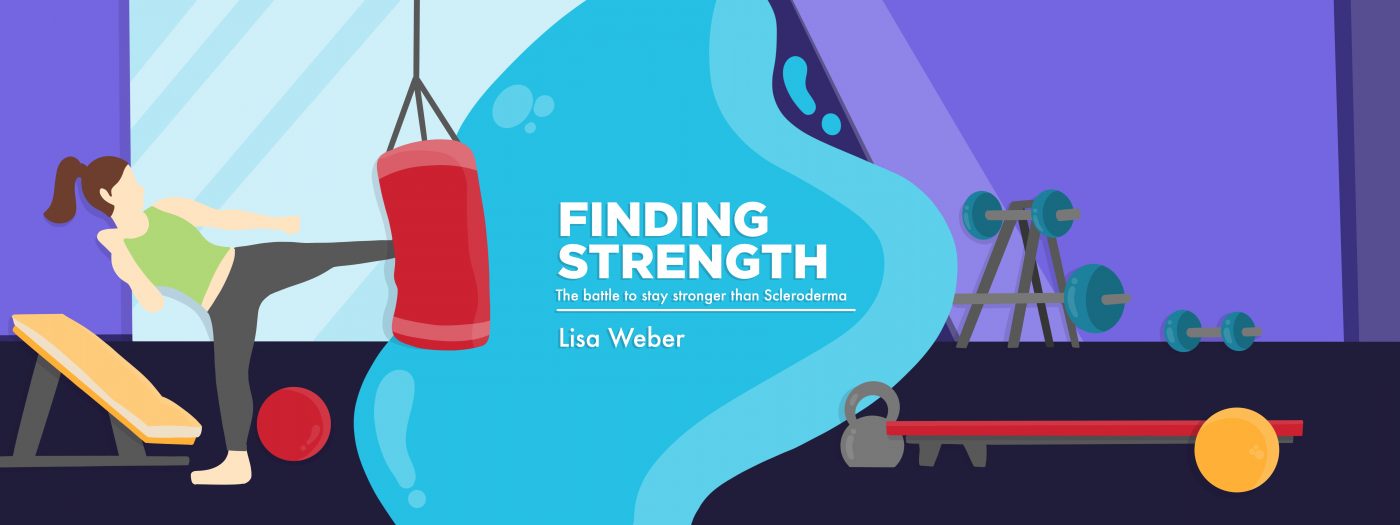This Rare Disease Day, I’m Asking Others to Help Us Be Less Rare
Written by |

“You’re imperfect, and you’re wired for struggle, but you are worthy of love and belonging.” Brené Brown said these words, but they belong to my heart.
The last day of February is dedicated to raising awareness for rare diseases. Rare Disease Day helps people who live with incredible challenges and desperately seek empathy.
There are so many ailments that destroy the body, mind, and soul. Rare diseases are often invisible to others, and that leaves many people to fight and suffer alone.
Help others understand your disease
When I was first diagnosed with scleroderma in 2014, my doctors didn’t know if I’d still be alive in two years.
From the beginning, I have tried to be open about my illness. I wanted to help people learn about rare disorders and understand the disabilities they can cause. But my casual conversations often ended the same way. In others’ minds, I must have done something wrong to inflict this upon myself, and I could heal myself if I really wanted to.
Over the years, I’ve been criticized for using handicap parking because I appear healthy. I have faced disdain for wearing gloves on hot summer days because it wasn’t deemed normal. Achingly, people have told me I’m being “weak” and need to get over it. I previously had no clue how to respond to these attacks.
It took me a long time to realize that I had to do a better job of explaining my disease. The lack of understanding hurt me just as much as my rare diagnosis.
I truly believe people do not intend to be cruel. They are only reacting to their lack of knowledge. It is hard to understand what people are going through if there’s no way to relate to that experience.
If people understood how their words and actions affected others, the world would be a kinder place. I urge you to find ways to teach others by building off common knowledge.
Because most people understand that allergies are automatic responses that cannot simply be wished away, I explain that scleroderma is similar to an allergic reaction. My body begins attacking and damaging itself without cause (at least, the cause is still unknown). This explanation is relatable and usually met with an open mind and more meaningful discussions.
If you don’t have a rare disease, how can you help?
When you hear about a rare condition, do your research. Learn about the damage it causes and the challenges it inflicts. Simply reading about the symptoms will help you gain an appreciation for how strong people are, and how difficult it is for them to fight through each day. You can then help others be less judgmental by passing on such vital knowledge.
You can also donate money to research for treatments and cures. Medical advances for one disorder can impact multiple other diseases.
You can also spread awareness by organizing fundraisers and events. The money raised can be donated to research and patient support. Gathering the community in some way can spark conversations about illnesses that are not commonly discussed. The event can be as big as a 5K race or as simple as a Facebook challenge.
Not too long ago, ALS was just three letters to many households. Then, the Ice Bucket Challenge on social media turned those three letters into stories about real people suffering. It started a movement that continues to advance the fight against ALS. Awareness can lead to more funds and research, more attention from policymakers, and more support from the community.
Rare disease can affect anyone
Be grateful if you and your loved ones have never heard of a rare disease. But understand that even though these diseases are rare, it doesn’t mean your family is immune. Rare diseases can affect anyone — of any age, race, or sex. Strong people get them, too. No one chooses to live a chronically ill life.
This year, Rare Disease Day falls on Feb. 28. Help improve the lives of others by doing something to support them. You likely know someone who is silently suffering. Offer them the voice they may be too afraid or sick to share themselves. Or maybe you know someone like me who is screaming out loud for help. Your support means the world to all of us.
***
Note: Scleroderma News is strictly a news and information website about the disease. It does not provide medical advice, diagnosis, or treatment. This content is not intended to be a substitute for professional medical advice, diagnosis, or treatment. Always seek the advice of your physician or other qualified health provider with any questions you may have regarding a medical condition. Never disregard professional medical advice or delay in seeking it because of something you have read on this website. The opinions expressed in this column are not those of Scleroderma News or its parent company, Bionews, and are intended to spark discussion about issues pertaining to scleroderma.






Gretchen Shepard
Thankyou Lisa for sharing your story.Its wonderful your bringing awareness to this aweful decease. Hopefully the cure is in the near future. I suffer as well. Stay Safe!
Lisa Weber
We are in this together, Gretchen. Stay strong and keep fighting. One day there will be a cure!